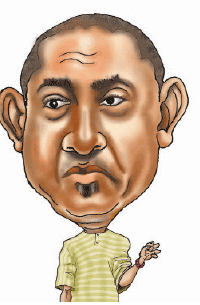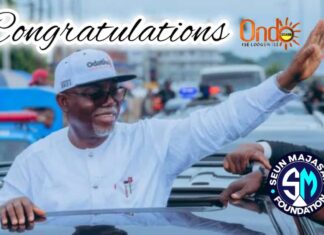Post-war Nigeria merits some treatment in this work. I had spoken of rehabilitation, reconstruction and reconciliation (3Rs), which General Yakubu Gowon’s government (1966-1975) touted as the responsibility of his government that recognised “no victor and no vanquished” in 30 months of a bitter fratricidal war. That statement came from the heart of Gowon alone. His military machine and the think-tank behind it felt differently about things, as the events of post-war years were to reveal. It is now apparent that there were economic reprisals planned against the “rebels” that the Ndigbo represented. Worse than that, there was an unwritten resolution to slow down the progress of the eastern area of the country and stifle its development. No one needed remind the Ndigbo that their loss of the war was a scar that would take generations to heal.
Some learnt bitter lessons from little investment back home before the war. They found themselves inevitably squatting with the wise who made sure they had roof over their heads while the going was good in distant lands where they had gone to make their fortunes. The trauma of poor home base made victims of the war reluctant to leave Igboland once more in search of fortune. Most people made a resolution to stay close to home and build from there. But the resources were simply not there.
My brother, P.J. Odu, who was a star in both Nigerian and Biafran Navy, was reluctant to head for Lagos, which was the centre of commerce. He had tremendous goodwill in the Nigerian Navy, but he did not want to approach his colleagues for help, having been hurt by the manner his brilliant career was terminated. My brother was one to feel that the pride of a man was what made the man a man. He decided to put his organisational talent to use in private trading.
I must speak a little here about my only brother, born Paschal Jacob Odu, whose arrival into my parent’s arms marked my father’s assurance of an heir. He came immediately before me in order of primogeniture. My father was mocked as a man whose hearth was barren since he had made four women in series. I learnt later that the only man in line came before Paschal but did not live, and that hurt my parents so deep. They must have wondered at the fate that befell them on that loss and must have passionately asked for another chance at a male child. PJ, as he later preferred to be called, was the answer to their prayers.
When he was born, there was a loud celebration to silence detractors who were poised to share my father’s land holdings from his father and rub salt into injury by asking for the bride price of all his female children. The story of my father’s exploits with Nigerian Railway Corporation (NRC) exacerbated the envy and negative volition that my father should fail in his bid to bear a son. The party to welcome PJ to our extended family was meant to shame such detractors and willed the negative for my father.
Though my father was a Christian, he was traditional to the core. He had a worthy heir, the oracle said. He would be an engineer in father’s path and better his path. PJ was so brilliant at Bishop Shanahan College, Orlu, Imo State, that he made his Cambridge with Distinction in 1956. He was still immature when he left secondary school, but he held his own as a young teacher in Bukuru where my elder sister, Maria, now Mrs. Okwo then lived. They had a pact with my mother, and their destiny to ensure the survival of us both and the preservation of their family heritage thereby. PJ in Bukuru betrayed his youth since, as a primary school teacher straight after school, he found nothing strange about playing with his pupils during break in his trousers and all in the cool Jos afternoon. There was then not much difference in age of teacher and pupils. In fact, some of the pupils of then Bukuru were older than he was by far.
PJ went on to apply for appointment in a bank where he had a short spell with International Bank of West Africa before he was attracted by the glamour of the navy to join the armed forces. His eyes were bad as he confided in me much later. His brilliance helped him jump the sight hurdle since he memorised the letters that tested the focal length of the eye and reeled it off to his examiner in a manner that was promptly persuasive of acuity of his vision. I gathered later that sight was important for qualification for enlistment.












